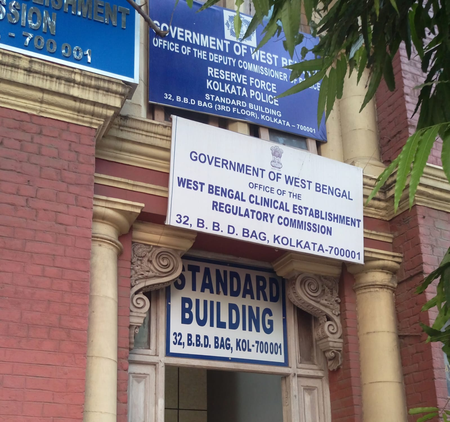
New Delhi, March 6 (IANS) Cyberknife radiosurgery is a non-invasive, pain-free procedure that eliminates the risks associated with conventional surgery and has transformed radiation treatment in oncology, said doctors here on Wednesday.
The non-invasive robotic radiosurgery system enables highly precise and targeted delivery of radiation to tumours, minimising damage to surrounding healthy tissues.
“Cyberknife radiosurgery stands at the forefront of medical innovation, offering a beacon of hope for patients with conditions previously deemed challenging to treat. By employing sophisticated robotics and real-time imaging, it delivers highly targeted radiation with pinpoint accuracy, sparing surrounding healthy tissues and minimising side effects,” Dr. Aditya Gupta, Director of Neurosurgery and Cyberknife at Artemis Hospital Gurugram, told IANS.
“Cyberknife radiosurgery has transformed the landscape of cancer treatment, offering a ray of hope to those battling complex conditions,” he added. Artemis has become the first hospital in India to surpass 1,500 Cyberknife Radio Surgeries.
The utilisation of Cyberknife technology, especially in India, has been limited despite its significant advantages. Depending on the type, size, location of the tumour, a patient must be carefully chosen for better and enhanced outcomes.
“CyberKnife has ability to deliver radiation in shorter time (fewer sessions) with submillimeter accuracy and its continuous imaging (real-time imaging) ensures that the radiation is precisely directed to the tumour, even if the patient moves or if there are slight changes in the tumour position due to breathing or other bodily processes. It is effective in treating a variety of tumours, including those in the brain, spine, lung, liver, and pancreas. Its versatility makes it a valuable tool in the treatment arsenal for many types of tumour. CyberKnife represents a transformative leap in radiation treatment, offering unparalleled precision, adaptability, and reduced invasiveness,” Dr Anita Malik, Radiation Oncologist at Fortis Noida.
“Cyberknife focuses on cancer cells exclusively thus minimising damage to surrounding healthy tissue. Its role in cancer treatment includes treating tumours in various locations, especially those considered challenging or inaccessible by traditional surgery. The Cyberknife’s accuracy helps patients with brain, lung, bone, liver tumours etc. as it spares healthy tissues and reduces the side effects for patients,” Dr Shyam Aggarwal, Chairman, Department of Medical Oncology, Sir Ganga Ram Hospital, told IANS.
Dr. Aditya noted that the most noteworthy applications of Cyberknife has been in the treatment of metastatic cancers in the brain.
“Patients who might otherwise have been subjected to whole brain radiation therapy (WBRT), with its attendant risks and side effects, can receive focused Cyberknife radiation therapy. This is particularly beneficial for treating repeated lesions, a scenario where WBRT is not viable due to the risk of exceeding the brain’s tolerance for radiation,” he said.
–IANS
rvt/uk




